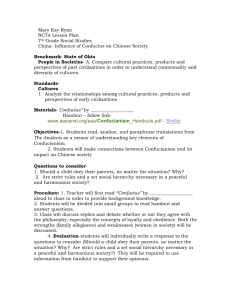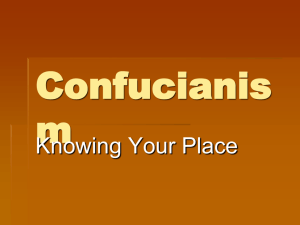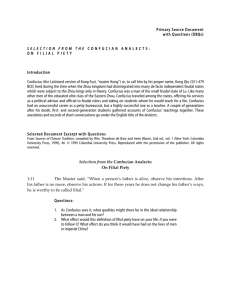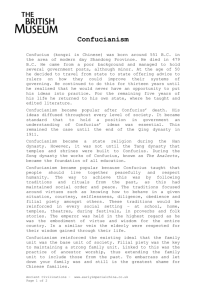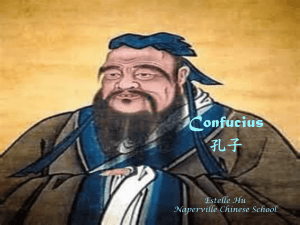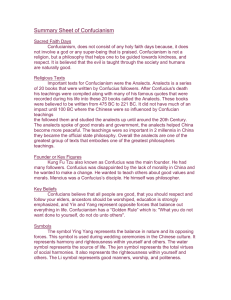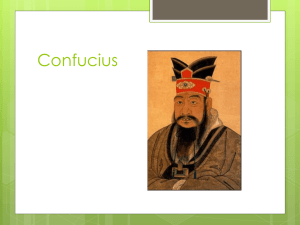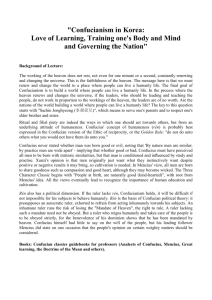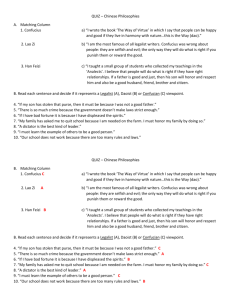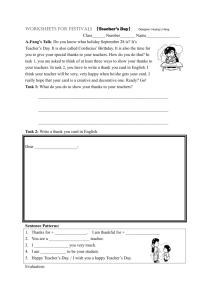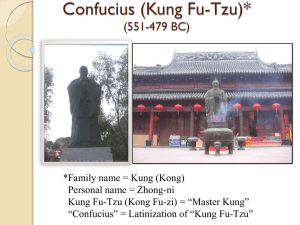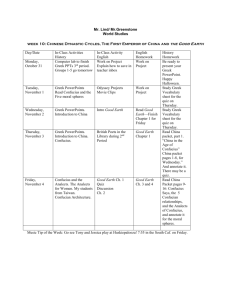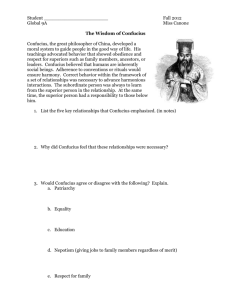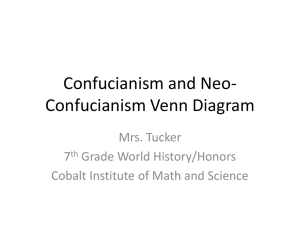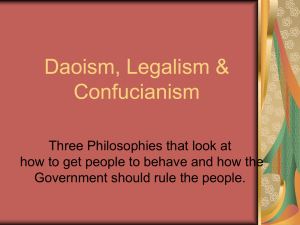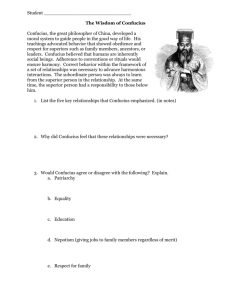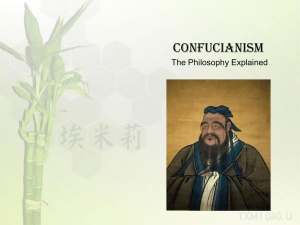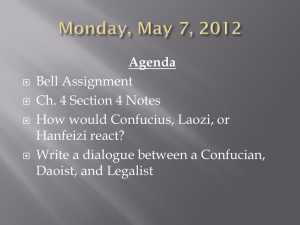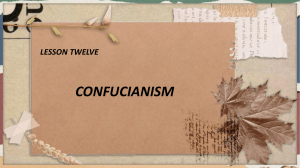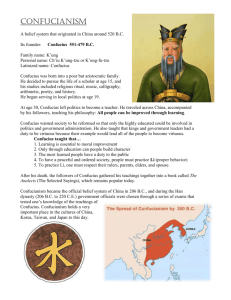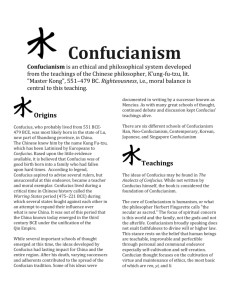Confucius.doc
advertisement
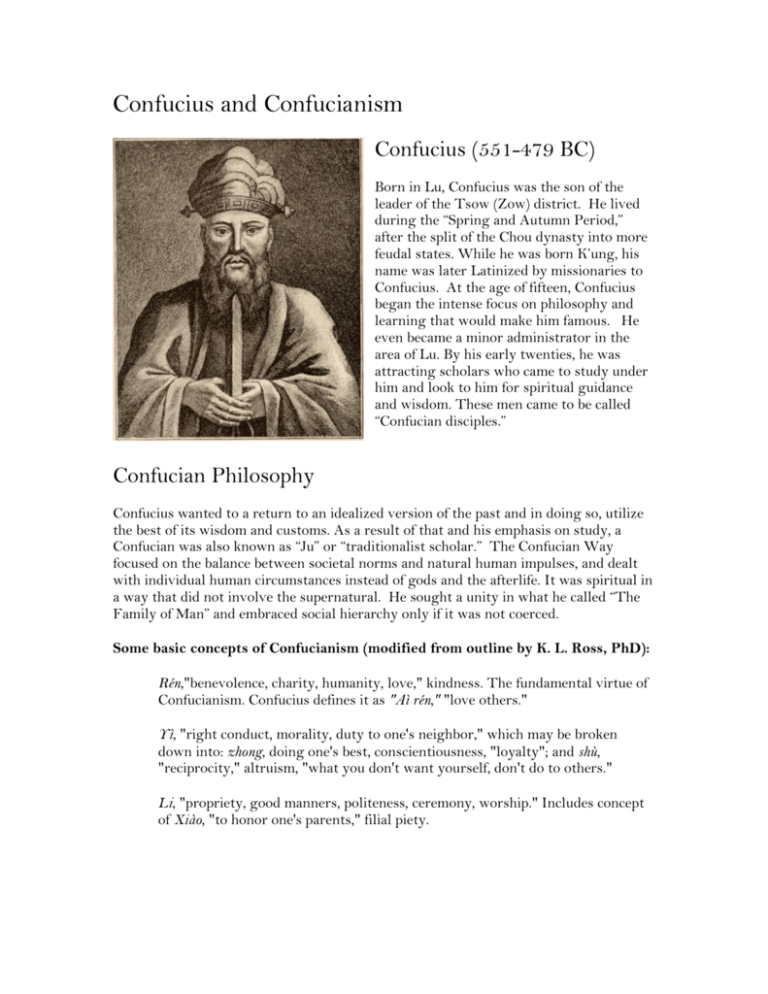
Confucius and Confucianism Confucius (551-479 BC) Born in Lu, Confucius was the son of the leader of the Tsow (Zow) district. He lived during the “Spring and Autumn Period,” after the split of the Chou dynasty into more feudal states. While he was born K’ung, his name was later Latinized by missionaries to Confucius. At the age of fifteen, Confucius began the intense focus on philosophy and learning that would make him famous. He even became a minor administrator in the area of Lu. By his early twenties, he was attracting scholars who came to study under him and look to him for spiritual guidance and wisdom. These men came to be called “Confucian disciples.” Confucian Philosophy Confucius wanted to a return to an idealized version of the past and in doing so, utilize the best of its wisdom and customs. As a result of that and his emphasis on study, a Confucian was also known as “Ju” or “traditionalist scholar.” The Confucian Way focused on the balance between societal norms and natural human impulses, and dealt with individual human circumstances instead of gods and the afterlife. It was spiritual in a way that did not involve the supernatural. He sought a unity in what he called “The Family of Man” and embraced social hierarchy only if it was not coerced. Some basic concepts of Confucianism (modified from outline by K. L. Ross, PhD): Rén,"benevolence, charity, humanity, love," kindness. The fundamental virtue of Confucianism. Confucius defines it as "Aì rén," "love others." Yì, "right conduct, morality, duty to one's neighbor," which may be broken down into: zhong, doing one's best, conscientiousness, "loyalty"; and shù, "reciprocity," altruism, "what you don't want yourself, don't do to others." Li, "propriety, good manners, politeness, ceremony, worship." Includes concept of Xiào, "to honor one's parents," filial piety. Analects of Confucius The work Analects consists of twenty books, only fifteen of which are attributed to Confucius. Each book contains several chapters. The chapters themselves are called “analects.” While chapters are somewhat thematically grouped, there is no true structure. Recurring themes are the importance of order, morality, and selfcultivation. Traditionally, these are nuggets of real conversations Confucius had with his disciples and therefore the window into his wisdom. His sayings, while mostly short and pithy, allow readers to search inside themselves for meaning and delve for their own inner wisdom. For over two thousand years, the Analects where considered absolutely vital to Chinese scholars. They studied them religiously, even memorizing the work. Confucianism was considered the path to enlightenment and thus essential. As a result, its influence on Chinese society was vast. However, during the Han Dynasty, Confucianism was claimed as the official philosophy of the state. It was used to justify forcing “inferiors” to submit to authority. As a result, it became associated with despotism and is largely disavowed by modern Chinese.

